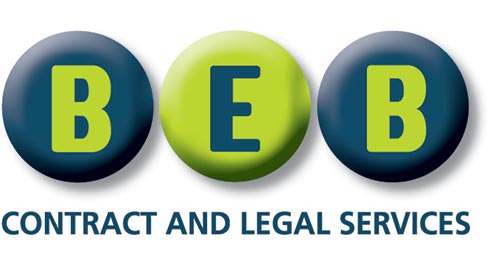Embarking on a startup journey is undeniably exhilarating, brimming with the promise of fresh ideas and innovative solutions to longstanding problems. However, the harsh reality is that a significant number of UK startups fail within just a few years, often due to the lack of clear plans for the future or even something as simple as internal disagreements amongst partners. This underscores the importance of a well-crafted shareholder agreement for a startup company—a vital document outlining rights, responsibilities, and decision-making processes.
Defining Shareholder Agreements
A shareholder agreement is a legally binding document that delineates the rights, obligations, and relationships amongst shareholders within a company. Its primary purpose is to establish a framework for governing key aspects of the business, providing clarity on decision-making processes, dispute resolution, and the protection of individual shareholder interests. By outlining the rules of engagement, a well-crafted shareholder agreement helps mitigate potential conflicts and promotes a harmonious working environment amongst stakeholders.
Legal framework for shareholder agreements in the UK
In the United Kingdom, shareholder agreements operate within the broader legal context of corporate law. While the Companies Act governs companies, these documents offer flexibility for shareholders to tailor arrangements according to their specific needs and preferences.
This legal framework allows parties to customise governance structures, establish mechanisms for dispute resolution, and define the transferability of shares. All of this provides fledgling companies with a level of autonomy crucial for adapting to the dynamic nature of startup environments.
Relevance to startup governance
Despite being a prime breeding ground for innovation and fresh business ideas, the UK has one of the highest exit rates in Europe. Research showed that almost 60% of UK startups and SMEs fail in the first three years, and only 25% could scale up their business ventures within five years.
Shareholder agreements play a pivotal role in ensuring the smooth functioning and longevity of businesses. Startups, often characterised by rapid changes and uncertainties, benefit from the clarity and structure offered by these agreements. They serve as a blueprint for decision-making, addressing issues such as the allocation of responsibilities, voting rights, and mechanisms for resolving disputes.
Proactively establishing these parameters not only contributes to stability but also seamlessly integrates with the broader legal landscape. This ensures startups can navigate challenges with a well-defined roadmap, enhancing trust amongst partners and paving the way for sustainable growth in the competitive business landscape.
Importance of a Shareholder Agreement for a Startup
When navigating the dynamic landscape of the UK startup ecosystem, the significance of having a shareholder agreement cannot be overstated. Not only do these agreements define the rules of engagement, but they also serve as strategic tools for fostering stability, aligning interests, and enhancing the overall resilience of UK ventures in the face of various challenges.
1. Defining shareholders’ stakes
A crucial aspect of shareholder agreements is clearly defining each shareholder’s stake in the company. By outlining ownership percentage and its associated rights, it provides transparency and prevents ambiguity, laying a foundation for a more stable business structure.
3. Addressing vesting and ownership issues
Shareholder agreements effectively address vesting and ownership concerns, especially in startups where equity distribution is often tied to milestones or timeframes. This ensures that equity is earned over time, matching the interests of founders and key contributors with the venture’s long-term success.
4. Streamlining decision-making in growth phases
As startups navigate growth phases, efficient decision-making becomes crucial. Shareholder agreements establish clear procedures for critical decisions, preventing bottlenecks and fostering agility. This streamlined approach enables startups to respond effectively to opportunities and challenges in a rapidly evolving business landscape.
5. Protection of founder interests
Founders’ interests are safeguarded through shareholder agreements by delineating roles, responsibilities, and exit strategies. These agreements anticipate various scenarios, including the departure of a founder, ensuring fairness and protection of their contributions to the startup’s inception and development.
6. Mitigating risks of disagreements amongst founders
Disagreements amongst founders can be detrimental to a startup’s success. In fact, it is one of the common reasons young ventures fail. Shareholder agreements act as pre-emptive measures by outlining dispute resolution mechanisms, preventing potential conflicts from escalating and disrupting business operations.
7. Enhancing credibility with potential investors
Investors seek assurance and stability before committing to a startup. A well-structured shareholder agreement enhances credibility by demonstrating a commitment to transparency, governance, and risk management. This, in turn, fosters trust and attracts potential investors looking for a solid foundation in their investment.
8. Demonstrating corporate governance
A shareholder agreement for a startup serves as tangible evidence of a company’s commitment to sound corporate governance practices. This helps instil confidence amongst stakeholders and aligns the startup with regulatory expectations, contributing to a positive reputation in the business world.
Protect Your Startup with a Solid Shareholders Agreement
With how easy it is for many UK startups to fail, it is crucial to take a proactive approach to facing the challenges that often accompany new entrepreneurial ventures. A well-crafted shareholder agreement is not merely a legal formality. Rather, it is a strategic cornerstone for local startups and SMEs. It can help you navigate the intricacies of corporate law while serving as a roadmap, guiding your company through uncertainties and challenges. More importantly, it helps ensure a future of innovation, growth, and resilience in the competitive UK business landscape.
At BEB, we specialise in drafting comprehensive and legally sound shareholder agreements. Our seasoned team understands the intricacies of UK startup dynamics and is committed to fortifying your business foundation to help you achieve growth and success. Get in touch with us, and we’ll provide you with the expert solutions you require.
If you need any of these legal and contract services get in touch with us today on 01604 217365 or info@bebconsultancy.co.uk
Free Resources
Small Business Owners Guide to Contracts
The Construction Review Checklist
Online Courses

